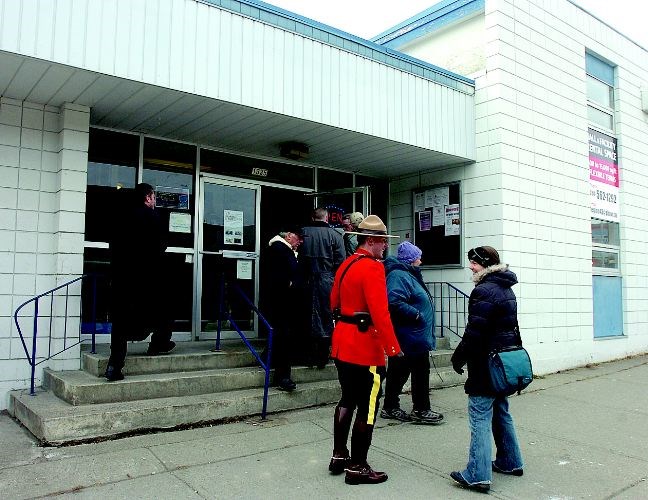A class project by a group of UNBC business students is helping the Prince George Royal Canadian Legion Branch 43 reinvent itself.
The class of 18 was looking for a real-life example for its case study of an existing business and the Legion emerged as a perfect candidate for the analysis. The price was right for the cash-strapped Legion, having students volunteer to augment a new business plan prepared by Prince George Community Futures.
"The Legion is trying to get some new membership basically to save themselves from the brink," said Jason Hamborg, a UNBC human resources management major and JDC West member.
"They got a whole bunch of free consulting and it was great for ourselves because it really was the first time we've taken everything we've been learning the past four years and put it into effect."
The class of third- and fourth-year students was divided into three groups of six for the five-week project. They interviewed Legion members, examined financial documents and developed recommendations in a business report, presented last week to the Legion board.
"In every group we tried to have an accountant, someone with marketing skills, and HR people," said Hamborg. "We understood that we wouldn't be able to solve all the issues but we had lots of longer-term strategic ideas on how to market themselves, how to position themselves against the different competitors, and [suggested] some short-term operation things they might not have thought of.
"The Legion's executive has all the best intentions but there's not a lot of business savvy, so some of the stuff is hard for them to identify."
John Scott, the Legion's B.C./Yukon Central zone commander and former president of Branch 43, won't argue that point. He said the Legion is known for its low-cost hearty meals, which don't bring in enough revenue to cover costs. He said those days are now over.
"We have to get a little more cold-hearted," laughed Scott. "The students are trying to give us a new direction, so we can see what the youth would like to do and what's new in operating in business today. Right now, our bar and our kitchen are all we have [to generate operating revenue]."
UNBC professor Phil Clough set up the project, having heard from a Legion member that the business has failing as a moneymaking operation. After years of operating in the red due to declining membership and rising fixed costs, the Legion branch announced last spring its plans to sell the 20,000 square-foot building it has called home since 1962. A group of investors bought it in May and allowed the Legion to remain there rent-free for a year, until the organization moves into a leased location, the former Elks Lodge at 1116 Sixth Avenue. That move will take place next May.
Hamborg said the Legion has to do a better job of creating awareness for the services it provides veterans and the public. One of the recommendations was to take more advantage of the local media to get more people involved in determining its longterm future. The Legion is making that possible with its online survey, at http://fluidsurveys.com/s/legion43survey/, which is also available in paper form at the downtown branch at 1335 Seventh Ave. The deadline for survey submissions is next Wednesday.
The Legion dropped its requirement several years ago that new members have to be related to people who have served in the military, but many people are not aware of that, which Hamborg says is an example of a public misunderstanding that hampers growth. He says creating a food and liquor service establishment with mass appeal is key to the Legion's survival.
"Once we started working with the project, there were groups of us going down to the Legion for a beer and to hang out -- it's a cool place and they had free pool, so why not," said Hamborg. "They have the poppy campaign but the operation relies on that food and bar service to fund all their other really important initiatives."



